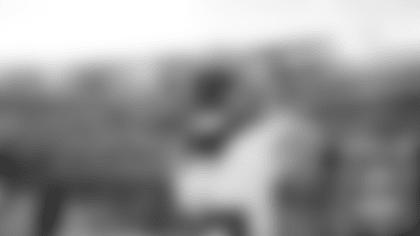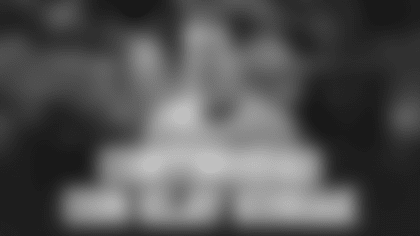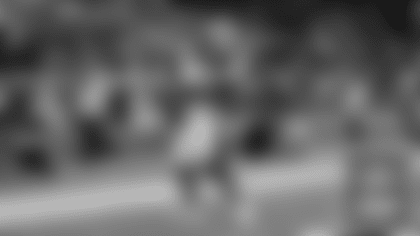Life in the NFL is an uphill climb for an undrafted free agent.
The most common route to an active roster spot for such players is through the practice squad. Garrett Celek broke that mold, making the San Francisco 49ers 53-man roster after not being selected in the 2012 draft.
Three years later, the former Michigan State Spartan is a starter in the 49ers offense. Celek's five receptions in 2015 are already a career high, and he's played more than 50 percent of the team's snaps in each of the first two games.
Knock on wood before reading this sentence, but the best part about this year for Celek has been his continued health throughout the offseason program and the early part of the season.
In 2014, Celek missed the first 11 games with back and hamstring injuries. Three games after returning to the field, a foot injury landed him on injured reserved, ending the tight end's season.
"It's a big blessing for me," Celek said. "Last year was tough. I had surgery and missed a majority of the season, and then I got hurt again after three games. It put a damper on the whole year."
When asked about his journey as a professional football player, Celek took the opportunity to give thanks to two veteran teammates who first showed him the ropes.
"It's a dream come true," the tight end said. "My rookie year, I wasn't sure how things were going to pan out, but I made the team. I was fortunate to learn from Vernon (Davis) and Delanie (Walker). I feel like I learned quite a bit over the years from those guys. Now I'm where I'm at today, and it just feels good."
Celek also credited his brother Brent, a nine-year tight end for the Philadelphia Eagles, for his development as a football player. Brent (30) is three years older than Garrett (27) and made sure to always look after his little brother.
"He always had things to say to me," Garrett said. "Especially after games, he was always watching my games and telling me what I did wrong and what I needed to do right. In the offseason, he and I always work out together. He's always been there behind my back and supporting me."
The brothers don't talk as much during the season as they'd like. That's not surprising given the demanding football schedule and the three-hour time difference from the Bay Area to the East Coast.
Even from afar, both are always keeping tabs on how the other fares each Sunday
"After one of us has a tough game, we'll give each other a call and try to raise each other up," Garrett said.
Brotherly Love
The brothers, even as they got older, found a way to mess with each other and make everything a competition. Garrett recalled one specific instance when their horsing around nearly remodeled the Celek household.
"A good moment was when he was in his second year in the NFL, and I was in college," Garrett said. "Normally we always mix it up, we fight each other, usually just wrestling. (This time,) I picked him up and I slammed him into the wall. I swear we almost went through the wall. From that point on, we realized we were too big for that. We haven't fought since then."
The wall didn't break, but a visible dent still commemorates the tussle.
"My mom was a little upset," Garrett said. A Unique Education
Ever met a packaging major? That's what Garrett specialized in at Michigan State after his football schedule wouldn't accommodate a mechanical engineering major. Garrett made sure to clear up a common misconception when asked about his degree.
"I wasn't training to be a UPS driver," he said. "It's a little bit different than that. You design packages or consult with a company on cost savings."
Garrett said Michigan State had the No. 1 packaging program in the country.
**
Service Trip to Haiti**
Garrett was one of four 49ers players to travel to Haiti for a service trip during the offseason. You can read the full recap here, but Garrett gave his take on the trip.
"That was a big eye-opener for myself and my teammates," Celek said. "When we got there, I didn't know what to expect. I didn't know a whole lot about Haiti. I knew about the earthquake and how that devastated the country, but really, you don't understand until you get there. I don't want to say it was depressing, but it was sad to see some of the conditions that the people were living in.
"One of my biggest takeaways I had from the trip was how little all those people had, but how happy they still were with what they did have."





